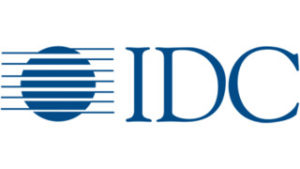September 6, 2018
Who’s Analyzing the Patient Experience? A look at KLAS, Black Book, IDC, Gartner, and Forrester

From the Affordable Care Act to changing patient demands, hospitals are getting pressure from all sides to do more with their technology spend. The sophistication of healthcare technology and complexity of the vendor landscape makes the decision process complex — a reality several firms have stepped up to help buyers navigate. But, this adds another layer of questions for buyers to ask:
Who can I trust?
Who has the best perspective on the problems I’m trying to solve?
What’s the truth behind each ranking?
This article will help you get a handle on five major analyst firms — KLAS, Black Book, IDC, Gartner, and Forrester — and serve as a resource for when you’re comparing different opinions.
This list is ordered by dedication to the healthcare industry, although the quality of the analysts is the ultimate measure of value. As the patient experience continues to evolve, knowledge of cross-industry consumer behavior will be increasingly valuable.
 KLAS
KLAS
There’s a reason KLAS is the leader in evaluating healthcare technology. Not only is KLAS focused exclusively on healthcare research and insights, but their ranking format is also easy to understand.
Their research model is clear and customer focused, centering on the experiences of healthcare professionals and payers. Its focus on transparency and peer insight has positioned them as the gold standard of healthcare analyst firms. Expect KLAS to maintain this level of insight as the patient experience continues to evolve.
Focus: Healthcare Technology
Analyst Team: 10 (in addition to their research and executive teams)
Stand-out Feature: Search and Vendor Profiles, as well as the KLAS Konfidence score that gives insight into how many customers KLAS worked with in determining its ranking
 Black Book Market Research
Black Book Market Research
Founded in 2002, Black Book has a ubiquitous presence in healthcare IT evaluation. The firm has deep roots in the industry with their Rankings branch dedicated to healthcare, research, and client experience polling.
Black Book aligns with KLAS in its focus on rankings but unlike KLAS, it does not ask vendors for lists of their customers, instead building lists themselves. Their investigative, vendor-agnostic approach has a reputation for being unbiased and can be a useful tool in going beyond CIO staff and understanding the opinion of a more robust list of user groups.
Focus: Market Research Branch is dedicated to healthcare
Analyst Team: Unknown
Stand-out Feature: Complimentary survey results
 International Data Corporation (IDC)
International Data Corporation (IDC)
IDC specializes in tech insights across industries including retail, energy, finance, and healthcare, and is particularly proud of its pursuit of objectivity. In healthcare, they tout their experience across the “entire healthcare and life science value chain.”
While not exclusively intersecting with healthcare, their focus on the consumer market could be useful in the future of the patient experience, and their cross-industry insight might prove valuable as patient engagement continues to blur with consumer engagement.
Their work also stands out for a stated focus on best practices in the use of IT to support healthcare and life science organizations in maximizing their tech investments.
Focus: Cross industry with analysts dedicated to healthcare and life sciences
Analyst Team: IDC touts over 1,000 industry analysts, with 17 focused on healthcare
Stand-out Feature: Research on patient engagement
 Gartner
Gartner
Gartner is another firm with cross-industry technology analysis that applies their expertise to healthcare. Their methodologies are transparent and include vendor and peer review along with evaluation and challenge of all ideas and projections. Their reputation for objectivity is supported by a strict code of conduct around its analysts and associates who aren’t permitted to own stock in any of the companies or sectors they cover. They also do not sell or implement tech solutions.
Their 40 years of experience in helping organizations navigate change might not be dedicated exclusively to healthcare but could come in handy as patients are increasingly centered in the healthcare experience.
Focus: Cross industry
Analyst Team: Very large, with over 15,000 associates
Stand-out Feature: Their Healthcare Provider page
Forrester
![]() Forrester is rooted in business and technology, meaning their research, data and analytics, and executive peer groups are well refined. While their number of analysts is small in comparison to other firms, they are known for their high quality.
Forrester is rooted in business and technology, meaning their research, data and analytics, and executive peer groups are well refined. While their number of analysts is small in comparison to other firms, they are known for their high quality.
Though not a healthcare-specific firm, Forrester does maintain a healthcare hub that addresses the intersection of technology strategy and implementation in clinical quality, online channels, and consumer-driven plan design.
It’s worth noting that Forrester is known for its strong focus on customer and consumer engagement, with some analysts dedicated exclusively to the specialty. Some of their latest research is directly focused on CX (the consumer experience) and healthcare’s lag in this area.
Focus: Cross industry with analysts dedicated to healthcare
Analyst Team: 12 focused on healthcare
Stand out Feature: Vendor selection resources
While it might be tempting to run immediately to a healthcare-focused firm, the rise of the patient experience represents an unprecedented change in the industry. Patients are consumers, and many of the advancements we stand to see in healthcare will also be happening (or have already happened) in other industries. Because of this, most organizations will benefit from consulting a mix of resources with a focus on objectivity and investment in the healthcare sector.
RevSpring Can Help
RevSpring believes in breaking down engagement barriers to deliver a unified and comprehensive patient experience from appointment scheduling to payment.
RevSpring is a leader in patient communication and payment systems designed to inspire action. We combine dynamic workflows, business intelligence, responsive messaging and behavioral analytics to tailor each touch point and engagement opportunity in the healthcare journey. Request a demo to see how we can help your organization meet its goals.
Some information in this post was sourced from Health Catalyst.